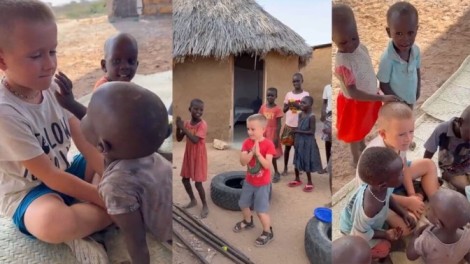There is a recent, most widely spread, video that has created a lot of controversy lately: a white boy visited Nigeria, Africa, and the local population believes him to be some kind of divine figure. The tape shows the arrival of a child in a small village where residents—most likely shocked by his appearance—are seen to treat him as if he were a god.
The video shows people in the village gathering around the boy and touching his hands and feet with reverence, offering him gifts. Some chant and sing praises to God; others bow in reverence. The sheer speed at which this video spread on social media is bound to draw all kinds of responses, ranging from incredulity and hilarity to shock and criticism.
Watch the video here:
The incident has started raising questions pertaining to the indelible effects of colonialism and strong myths of racial superiority. Critics view this reaction of the villagers as an ugly legacy of colonial influence, almost idolizing the white people among some African communities.
The video, however, does not confine its impact to within the boundaries of Nigeria but throws open a global discussion on racism, identity, and remnants of colonialism. Some viewers show empathy, explaining and understanding; others demand urgent actions to eradicate the root causes of such beliefs and to enhance equality and mutual respect toward one another among the races.
As the debate rages on, this becomes a viral video—a strong reminder of how much more work there is in order to really achieve racial equality and cultural understanding.










